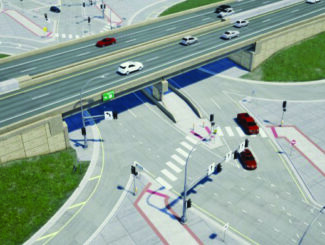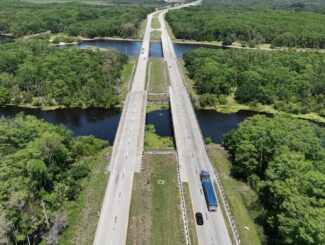April 17, 2025
By Behnaz Beladi, Director of Renewable Energy, WSB
Escalating environmental concerns and urbanization are driving a paradigm shift in city energy priorities, encouraging them to invest in sustainable solutions. Renewable energy offers a plethora of benefits including reduced greenhouse gas emissions, improved air quality and enhanced energy security. Transitioning to renewables presents an opportunity for cities to assert their commitment to sustainability while simultaneously reaping economic advantages through job creation and investment in clean technologies.
Key to this transition is the development of comprehensive renewable energy strategies tailored to the unique characteristics and needs of each city. These strategies encompass a multifaceted approach, incorporating policy initiatives, technological innovations, funding opportunities and community engagement.
Targeting Local Policy and Embracing Innovation
In today’s policy landscape, local leadership is more critical than ever. While federal climate and clean energy mandates are being reevaluated or scaled back, cities still have the authority, and growing public support, to set ambitious renewable energy goals.
Municipal governments can lead by adopting local ordinances, revising zoning and permitting frameworks, and investing in clean energy for public facilities. Market-based tools and voluntary programs may now take precedence over federal regulatory levers like carbon pricing or emissions caps. However, by demonstrating leadership and creating stable local policy environments, cities can still attract private investment and accelerate clean energy adoption.
Technological advancements play a pivotal role in facilitating the integration of renewable energy into urban infrastructure as well. From solar panels and wind turbines to energy-efficient buildings and smart grids, cities have a myriad of options at their disposal to harness clean energy sources. Embracing innovative technologies not only reduces carbon emissions but also enhances energy efficiency and promotes a more resilient urban infrastructure.
Navigating Federal and State Investment Opportunities
While large-scale federal investments in renewable energy, such as those under the Infrastructure Investment and Jobs Act (IIJA) and Inflation Reduction Act (IRA), were hallmarks of the previous administration, their implementation continues in a more limited and evolving form under the current administration. Existing programs still offer support for grid modernization, energy storage, and infrastructure upgrades, though many have been refocused or redirected to emphasize energy reliability, traditional fuel sources, and economic competitiveness.
Cities must now navigate a more complex funding environment, one where federal grants are often tied to broader infrastructure or energy resilience goals, and state-level programs play a more prominent role in advancing clean energy initiatives. Strategic project planning, economic justification, and bipartisan stakeholder support have become increasingly important for securing funding.
Despite these changes, opportunities remain. Cities that demonstrate readiness, innovation, and alignment with evolving national and state priorities can still access resources to advance their clean energy goals. In this environment, partnerships with private developers, utilities, and community organizations are key to building momentum and scaling impact.
Collaborating and Cooperating Across Communities and Industries
As cities transition to renewable energy, local community engagement is also incredibly important. Empowering residents through education, outreach and participation in decision-making processes fosters a sense of ownership and collective responsibility for sustainability initiatives. Community-led initiatives, such as neighborhood solar cooperatives and energy efficiency programs, can significantly contribute to the widespread adoption of renewable energy at the grassroots level.
Moreover, transitioning city energy towards renewable energy requires collaboration and cooperation across multiple stakeholders, including government agencies, businesses, academia and civil society organizations. By fostering partnerships and knowledge-sharing platforms, cities can leverage collective expertise and resources to overcome barriers and accelerate progress towards sustainability goals.
Challenges and How WSB Can Help Overcome Barriers
While there are numerous benefits in clean energy transitions for cities, there are also challenges. From policy barriers and technological limitations to financial constraints and community resistance, the path to achieving sustainable urban transformation is fraught with obstacles. However, WSB is uniquely positioned to help cities overcome these challenges and navigate the complexities of transitioning to clean energy.
For municipalities struggling to develop and implement policies that incentivize the adoption of renewables, WSB can provide invaluable expertise in policy analysis and development, helping cities design and enact robust regulatory frameworks that promote renewable energy deployment.
Technological barriers may also pose significant challenges to the widespread adoption of renewable energy in urban environments. WSB specializes in innovative engineering solutions, and we can work with cities to design and implement cutting-edge renewable energy technologies tailored to address the unique needs and constraints of urban infrastructure.
For cities exploring what renewable energy investments fit financially for their community, WSB can help by conducting feasibility studies, identifying funding sources and developing business models that maximize return on investment.
Finally, for those working to garner support and build community consensus for renewable energy projects, WSB specializes in stakeholder engagement, facilitating dialogue between local communities, government agencies and other stakeholders.
Even as federal direction shifts, many cities continue to pursue energy strategies that reflect their economic, environmental, and infrastructure goals. State-level programs, private-sector investment, and community partnerships remain vital tools in this pursuit.
WSB stands ready to assist cities at any stage, whether it’s evaluating energy options, navigating permitting and policy, or executing implementation strategies. Our multidisciplinary teams help communities chart a path forward that aligns with today’s energy realities while preparing for tomorrow’s opportunities.
Behnaz manages the multi-disciplinary renewable energy team in project and program operations. She is an accomplished academic, with a PhD of Mechanical Engineering from the Technical University of Vienna, an associate of the North American Board of Certified Energy Practitioners (NABCEP) and has served on the board of the Minnesota Solar Energy Industries Association, advocating for policy and regulatory initiative’s that strengthen the industry.
[email protected] | 612.468.8423


